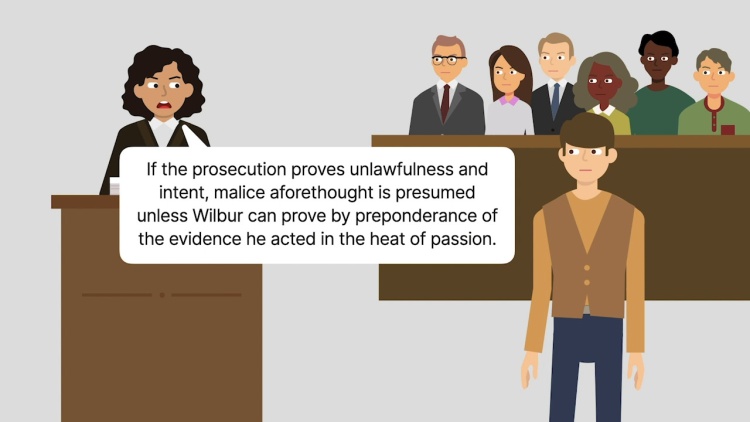Mullaney v. Wilbur
United States Supreme Court
421 U.S. 684 (1975)
- Written by Craig Conway, LLM
Facts
Stillman Wilbur, Jr. (defendant) was charged with murder after he fatally assaulted Claude Hebert in Hebert’s hotel room. At trial, Wilbur claimed he acted in the “heat of passion” and was provoked to attack Hebert after Hebert made sexual advances toward him. The Maine homicide statute required Wilbur to prove he acted in the “heat of passion on sudden provocation” in order to reduce the charge from murder to manslaughter. Wilbur offered no such evidence. Wilbur was convicted and he appealed. The Maine Supreme Judicial Court affirmed the conviction. Thereafter, Wilbur filed a petition in federal district court for a writ of habeas corpus against Mullaney, the warden of the prison where Wilbur was incarcerated. The district court granted the petition and held that the prosecution was required to prove Wilbur’s malice aforethought beyond a reasonable doubt and that it could not rely on a presumption of implied malice, which required the Wilbur to prove that he acted in the heat of passion on sudden provocation. The court of appeals affirmed. The U.S. Supreme Court granted certiorari to review.
Rule of Law
Issue
Holding and Reasoning (Powell, J.)
Concurrence (Rehnquist, J.)
What to do next…
Here's why 907,000 law students have relied on our case briefs:
- Written by law professors and practitioners, not other law students. 47,100 briefs, keyed to 996 casebooks. Top-notch customer support.
- The right amount of information, includes the facts, issues, rule of law, holding and reasoning, and any concurrences and dissents.
- Access in your classes, works on your mobile and tablet. Massive library of related video lessons and high quality multiple-choice questions.
- Easy to use, uniform format for every case brief. Written in plain English, not in legalese. Our briefs summarize and simplify; they don’t just repeat the court’s language.







